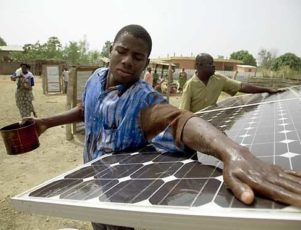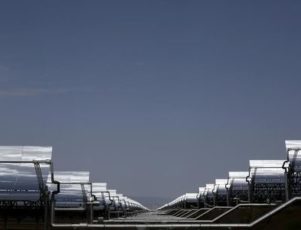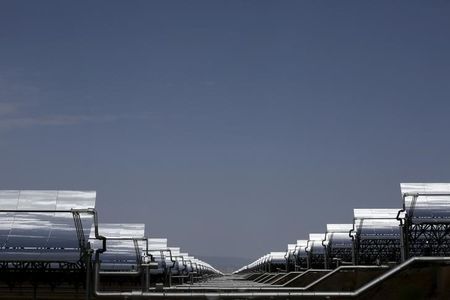With some of the most abundant renewable energy sources but the world’s highest prices for power, Africa has an enormous stake at the COP21.
Africa’s Power Deficit
This week, one of history’s largest-ever gatherings of world leaders is taking place in Paris, as the international community comes together to tackle climate change. Until December 11th, the 21st United Nations Conference of the Parties on Climate Change (COP21) will host more than 30,000 diplomats and delegates, seeking to reach a global pact which commits nearly every country in the world to reducing their greenhouse gas emissions.
Africa has an enormous stake in its success. 621 million people, two thirds of the population, currently live without electricity, using candles, kerosene, or wood to light their homes and cook. Power shortages and service interruptions are the norm. At present rates of progress, 300 million people will still lack electricity in 2040.
And although the continent produces little of the greenhouse gas emissions that world leaders at the COP21 are seeking to reduce, it is Africa’s poor and rural population who pay the highest prices in the world for power. Measured on a per-unit cost, households in Africa pay up to 80 times more for energy than those in London. Indeed, in Kenya charging a mobile phone costs nearly 400 times more than in the US. The economic effects are huge. According to the World Bank, more than 50% of African businesses cite inadequate power supply as a major business constraint.
UN Secretary-General Ban Ki-moon adds: “Africa is particularly vulnerable to the effects of climate change. Much of its economy depends on a climate-sensitive natural resource base, including rain-fed subsistence agriculture. Disruptions in food or water supplies pose serious risks not only for the economy but also for political stability, particularly in fragile states.”
Solar-preneurs

M-Kopa Solar Kit
But there is an environment primed for change. Africa has some of the most abundant renewable energy sources in the world, most notably solar, thanks to 320 days of sunshine per year. Over the past seven years, the price of solar panels has dropped by more than a quarter. Some East African countries have already declared solar products VAT exempt. And mobile penetration has brought people, even in remote communities, into a digital economy. In 2010, investment in renewable energy across Africa was just $3.6 billion, but estimates suggest that is set to hit $57.7 billion by 2020, as an affordable African solar industry is poised to take off.
First and foremost, we are seeing a rise of “solar-preneurs”. For example, Tanzanian startup Juabar designs, builds, and operates mobile solar charging kiosks which it leases to a network of entrepreneurs who can offer electricity to their communities. In Rwanda, the African Renewable Energy Distributor operates a similar franchise network around its own smart solar charging kiosks. There is also the hugely successful M-Kopa Solar – “kopa” is Swahili for “borrowed” – which has pioneered the idea of “Pay-as-you-go” renewable energy. Clients pay an upfront fee of $35 for a solar system (an eight watt solar panel, two LED lights, a USB phone charger, and a portable, solar-powered radio). Using a mobile payment system, clients then top-up $0.45 per day for a year after which the system is theirs. Since launching in 2012, the company has grown to provide power for more than 140,000 households in Kenya, Uganda, and Tanzania, and is adding over 4,000 homes each week. Two similar companies, Azuri and Angaza, are also seeing success.
Working to a slightly different model is Patrick Ngowi’s Tanzanian startup Helvetic Solar Contractors. Operating in Tanzania, Kenya, Uganda, Rwanda, and Burundi, and expanding to other parts of Africa, the company supplies durable and affordable solar products (including water heaters, solar kits, solar batteries, and solar street lights). The company also works in less privileged areas through its non-profit division, Light for Life Foundation, providing free solar solutions to rural African women, with a goal to help 100,000 by 2025. Valued at $8 million, it has been awarded the title of Fastest Growing Company and Brand in Tanzania by KPGM. On a similar theme German company Mobisol offers home solar systems via a mobile phone payment plan providing enough electricity to power a variety of household and consumer appliances. It also has larger systems on offer for small businesses.
Solar-orientated accelerators and financers are also emerging. For example, the San Francisco and Tanzania based SunFunder has already financed $2 million of solar projects. And Senegalese-American singer Akon’s Akon Lighting Africa initiative to bring solar electricity to rural Africa has announced the launch of a new Solar Academy to consolidate African expertise. The Academy will train African engineers and entrepreneurs in the skills needed to develop solar power, and to install and maintain solar-powered electricity systems and micro grids, with the support of European experts.
The International Commitment to Solar in Africa
The international community, too, is getting involved. The UK has launched an Energy Africa access campaign, chaired by former UN Secretary General Kofi Annan. This brings together Richard Branson (who has worked to develop solar power in Caribbean countries), Bob Geldof, and politicians from 14 African countries to work on solar power projects in Africa.
Branson is also part of the Breakthrough Energy Coalition alongside Bill Gates and Mark Zuckerberg. The coalition acts as an investment platform for early-stage clean energy projects which launched on the first day of COP21.
Again in the UK, the Africa Renewal Energy Alliance has seen Nigeria and Sierra Leone sign agreements to fast-track off-grid solar power. A further 12 countries, including Malawi, Senegal, and Tanzania, are expected to join.
2015 Paris Climate Conference COP21
This week’s COP21 is reaffirming the commitment to African renewables. On the first day of the conference, the host country’s President François Hollande announced plans for France to devote €6 billion to generate renewable energy (wind farms, solar power, and hydroelectric projects) in former West African colonies and across Africa between 2016 and 2020.
India’s Prime Minister Narendra Modi also launched an international solar alliance of 121 countries which will mobilize $1 trillion in investment by 2030 for a “massive deployment of affordable solar energy” in sun-rich but cash-poor countries around the world. Modi said: “Solar technology is evolving, costs are coming down and grid connectivity is improving,” he said. “The dream of universal access to clean energy is becoming more real. This will be the foundation of the new economy of the new century.” The Indian government is investing an initial $30 million and will host the alliance secretariat and fund its operations for five years.
So without the entrenched regime of oil and gas to negotiate, Africa now has the opportunity to jump from being the world’s energy-poorest continent to the leader of a new model of renewable energy.



